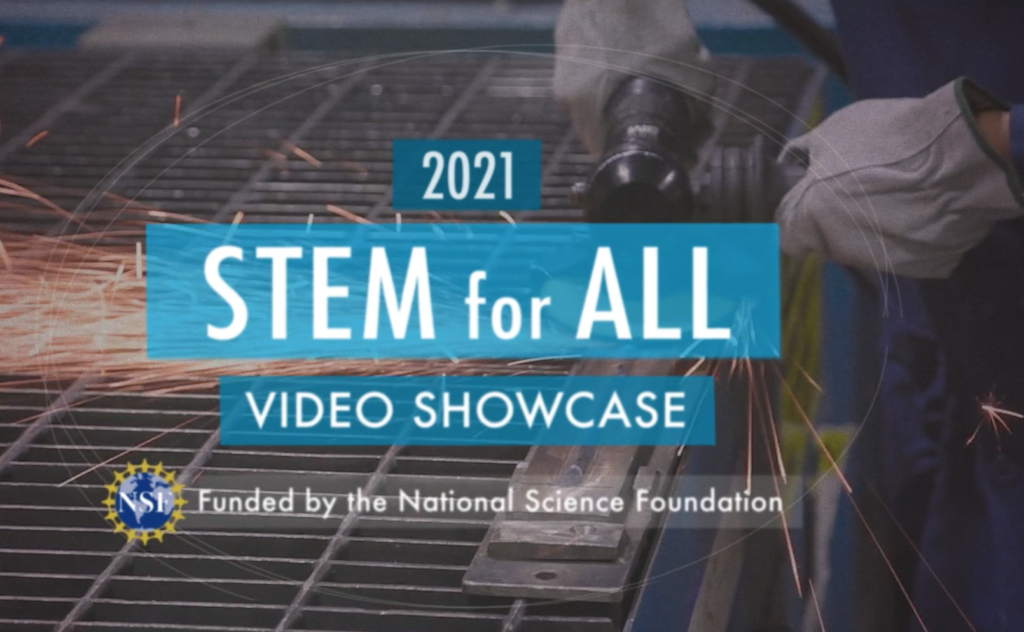Featuring 287 short videos of federally funded projects aimed at improving STEM and Computer Science education, the 2021 STEM For All Video Showcase highlighted strategies to engage students and address educational inequities. The array of 3-minute videos showed the depth of work going on in the field to think about equity and social justice in the wake of COVID-19. Below are some favorites of our CIRCLS team that we hope you enjoy as well!
Co-Creating Equitable STEM Research Led by Communities
Contributed by Leah Friedman
This video features a project partnership between the Cornell Lab of Ornithology and community organizations around the country that are historically excluded from science research. Centering community wisdom and leadership, the group investigates the impact of noise pollution on public health in order to co-create appropriate solutions. This project is an amazing model of upending typical hierarchies of knowledge creation or control in STEM research, provides a really concrete framework for conducting research with community members, and exemplifies ‘broadening’ in every sense of the word.
Interest Stereotypes Cause Gender Gaps in STEM Motivation
Contributed by Judi Fusco
Thinking about stereotypical gendered messages that young children, older children, teens, and even adults receive about whether they belong somewhere is so important. These messages may be subtle, nuanced, and not intended, but they happen; we need to make sure we aren’t excluding anyone, especially without realizing it.
Activity for Stories of Algebra for the Workplace
Contributed by Jeremy Roschelle
What if every student could tell a story of how they’ll use math in the future career? Although this is just a beginning, it seems to me the technology for personalized AI-driven STEM storytelling will arise soon enough — and could help students create their own STEM identity.
You Deserve A Seat at The Table: The Data Economy Workforce
Contributed by Jonathan Pittman
This video features a project at Bethune Cookman University that uses an immersive game learning experience to help students gain 21st century digital workforce skills. Using gamified immersion is an excellent approach to build workforce skills and learn about the future of work.
Big Data from Small Groups: Learning Analytics and Adaptive Support in Game-based Collaborative Learning
Contributed by Dalila Dragnić-Cindrić
In this project, groups of up to four students work together in a 3D game-based environment called Crystal Island to solve complex eco-problems. A research team from Indiana University and North Carolina State University is investigating how students in small groups communicate and coordinate with each other when problem solving. Researchers used learning analytics to drive adaptive support.
The lead presenter is one of our Emerging Scholars, Asmalina Saleh. PIs are James Lester and Cindy Hmelo-Silver. CoPI is Krista Glasewski.
Activity for “WHIMC: Using Minecraft to Trigger Interest in STEM”
Contributed by Wendy Martin
If you are a fan of Minecraft or alternative histories you should check out H. Chad Lane’s video about his project: What-If Hypothetical Implementation in Minecraft (WHIMC). I enjoyed learning about how those researchers were encouraging students to create alternate worlds to help them better understand the phenomena that shape our own world.
To explore videos from past video showcases, visit the STEM For All Multiplex.

